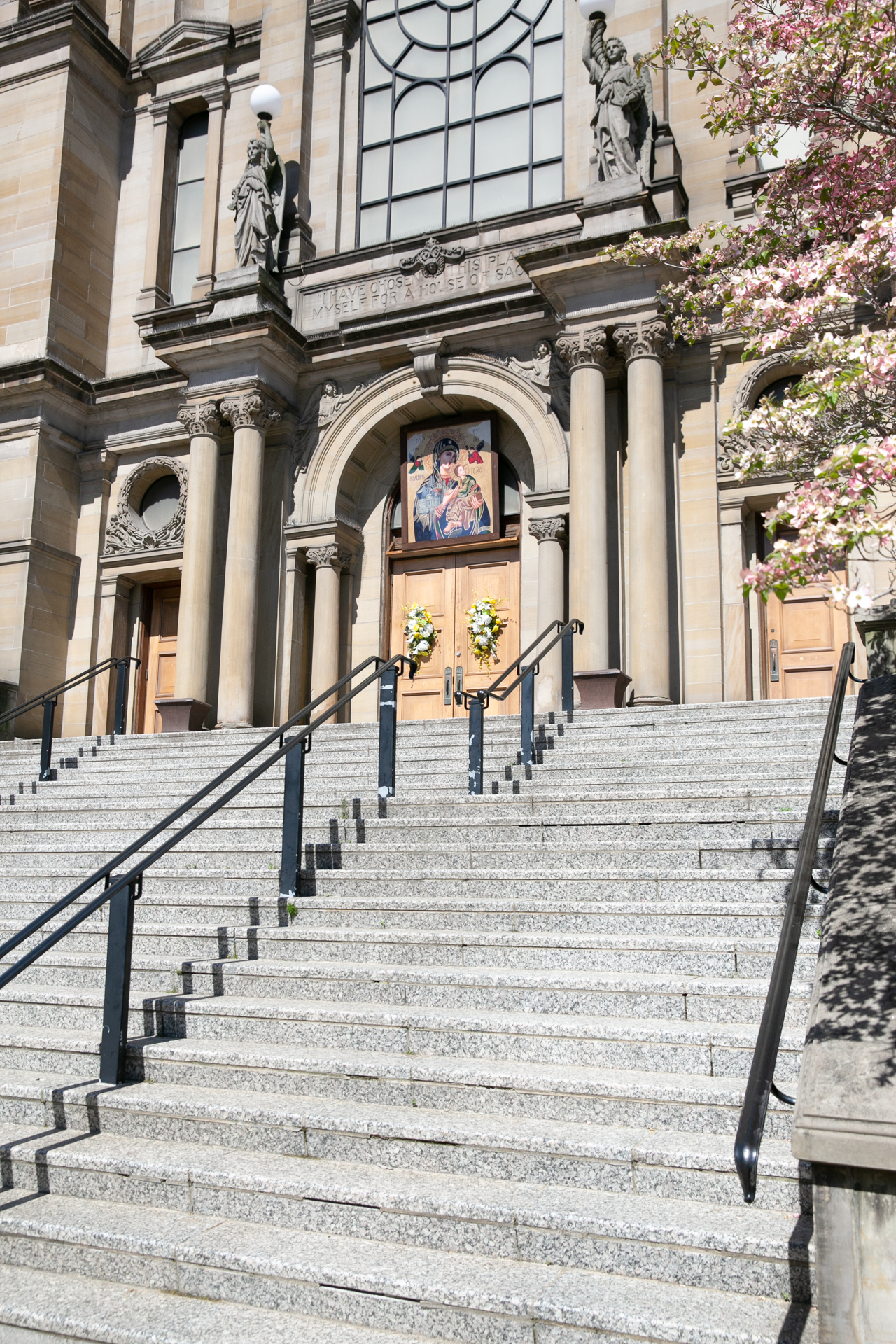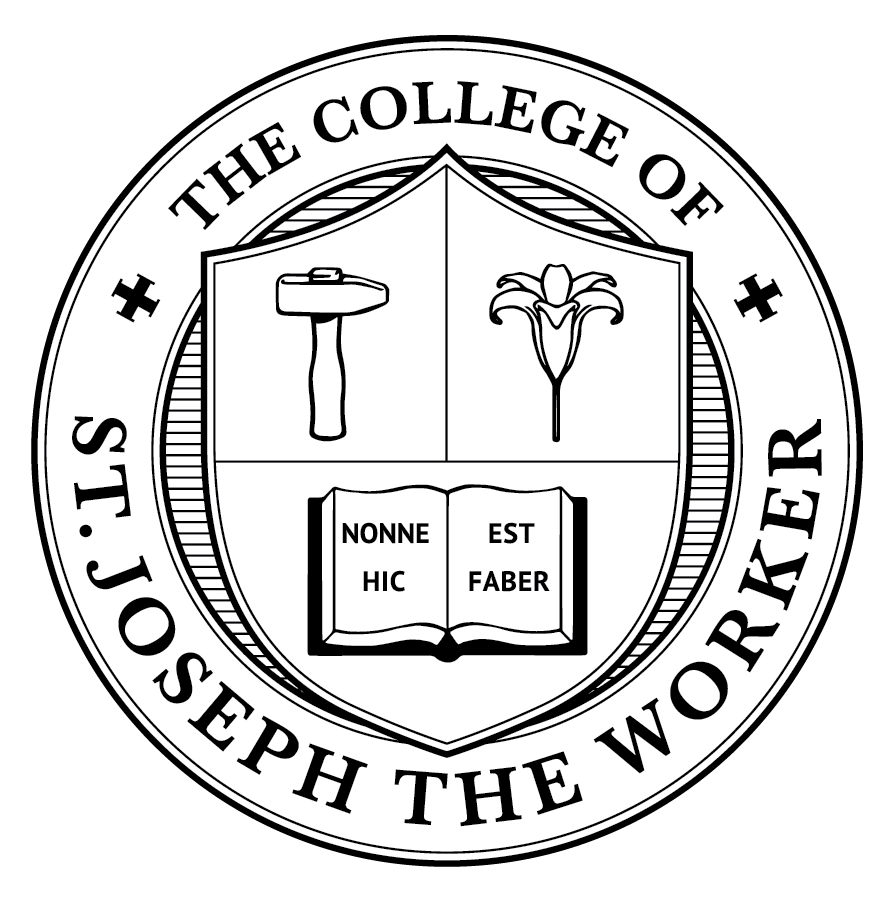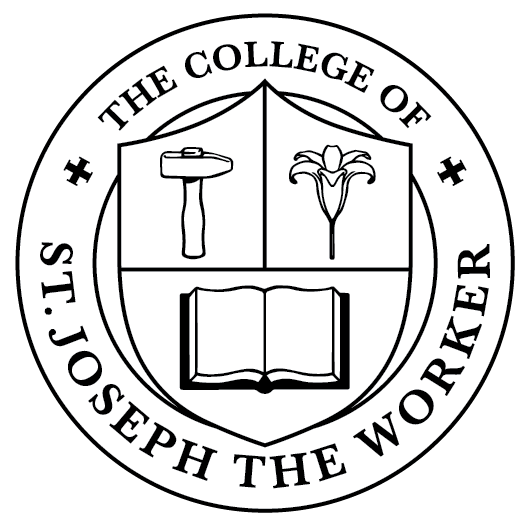
The Catholic Studies Degree
Students at the College of St. Joseph the Worker will earn a BA degree in Catholic Studies. This degree explores the Catholic intellectual tradition, which teaches that man is a rational being, but one that needs the aids of grace and revelation to properly understand the full reality of the Holy Trinity and His creation. As grace perfects nature in accordance with the inner dynamism of the rational soul, so theology perfects philosophy and all studies of the humanities by illuminating the true sense and nature of being, allowing finite intellects to understand truths that it never could have discovered by its own power. The College of St. Joseph the Worker assumes the Catholic tradition not as an intellectual crutch but rather as the ladder by which man can scale beyond the natural limits of the human mind to reach more profound, dynamic, and complex truths that truly free the soul. The tradition is not merely propositional content. It is a method of seeking the truth always with the humility of a creature and so in a manner that is always receptive to the gift of revelation. Reason is not aided by faith. Reason is fulfilled in faith. Our curriculum is, therefore, not divided into “natural” and “supernatural” pursuits. Rather, everywhere, in all of our studies, our reason is healed and perfected by our faith.
The Curriculum
The College of St. Joseph the Worker forms students in the lay vocation. The lay vocation consists of three primary responsibilities: work, family, and the temporal order. Our curriculum is therefore designed to give the students what they need in order to achieve excellence in these aspects of the Church’s life. Students start with the “Core” curriculum of the first three quarters of study. This Core provides a skeleton of Church history and the Sacred Scriptures that is fleshed out with the knowledge gained in subsequent courses. By the end of a student’s studies, his body of knowledge will form an organic whole—a world-view—that, when combined with formation in the interior life of prayer and the sacramental life of the Church, will enable the student to fulfill his lay vocation and so find happiness.
Modeled on the Universities of Christendom
There are three types of courses.
First, there are shop courses. These are hands-on courses in which the student will learn the skills necessary to plan and complete projects of direct, material creation. The student will learn how things work and how to work on things.
Second, there are lectio courses. Lectio is the source of the English word “lecture,” but it also means “reading.” Our lectio courses include both activities. They follow the medieval tradition of a professor providing a close, nearly passage-by-passage reading of important texts. The students, therefore, read with the professor. They learn not only the content of the texts but also how to read.
Third, there are disputatio courses. Disputatio is the source of the English word “disputation,” though the meaning isn’t quite the same. In disputatio courses, the students engage with a variety of texts that present different viewpoints on particular problems, and they discuss them in a seminar setting. The objective is to find where these viewpoints can be reconciled and where they cannot, to determine what aspects of them can be integrated into the body of truth and which must be rejected and why. The rationale for the rejection of erroneous positions becomes, therefore, as integral to the body of truth retained by the student as does the rationale for the embrace of sound positions.
At the medieval universities, lectio and disputatio were followed by meditatio and finally praedicatio. Meditatio is meditation. It is the prayerful thoughtfulness through which the truths of lectio and disputatio are internalized into the life of the virtuous person. The entire environment of the College of St. Joseph the Worker is aimed at cultivating meditatio as a necessary aspect of what it means to be a well-formed Catholic layperson. Praedicatio means preaching. The universities of Christendom were ordered always to the proclamation of the Gospel for the conversion of the world. The College of St. Joseph the Worker proudly follows this tradition. The praedicatio of the lay vocation is not the same as the preaching of the clerical vocation, but it is no less essential to the Church. As the cleric makes Christ present in his preaching, so the laity make Christ present by sanctifying the temporal order. As Vatican II taught: “The work of Christ’s redemption concerns essentially the salvation of men; it takes in also, however, the renewal of the whole temporal order” (Apostolicam Actuositatem 5). The temporal order includes: “personal and family values, culture, economic interests, the trades and professions, institutions of the political community, international relations, and so on” (AA 7). Lay praedicatio is, therefore, manifest most properly in action. The laity’s vocation is expansive, difficult and indispensable. Again, as the council taught: “The apostolate in the social milieu, that is, the effort to infuse a Christian spirit into the mentality, customs, laws, and structures of the community in which one lives, is so much the duty and responsibility of the laity that it can never be performed properly by others” (AA 13). The curriculum of the College of St. Joseph the Worker is ordered from top to bottom for this bold mission.






